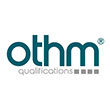- About
-
Courses
- Erasmus+ Programme
-
ACCA Courses
- ACCA Business and Technology (BT)
- ACCA Financial Accounting (FA)
- ACCA Corporate and Business Law (LW)
- ACCA Management Accounting (MA)
- ACCA -Taxation (TX)
- ACCA Financial Reporting (FR)
- ACCA Audit and Assurance (AA)
- ACCA -Financial Management (FM)
- ACCA P1 / P3 / SBL - Strategic Business Leader
- ACCA P2 / SBR- Strategic Business Reporting
- ACCA P4 / AFM - Advanced Financial Management
- ACCA Performance Management (PM)
- ACCA P7 / AAA - Advanced Audit and Assurance
- ACCA Diploma in Accounting and Business (Level 5)
-
Business Administration and Management
- OTHM UK Level 4 / MQF Level 5 Diploma in Project Management
- OTHM UK Level 4 / MQF Level 5 Diploma in Business Management
- MQF Level 5 Undergraduate Diploma in Strategic Business Management
-
MQF Level 6 Bachelor of Arts (BA) in Business Management (Top-Up Degree)
- Award in Strategic Management (Level 5)
- Award in Strategic Leadership (Level 5)
- Award in Strategic Human Resource Management (Level 5)
- Award in Strategic Financial Management (Level 5)
- Award in Strategic Change Management (Level 5)
- Award in Business Research Methods (Level 5)
- Award in Innovation and Entrepreneurship (Level 6)
- Award in Global Business (Level 6)
- Award in Digital Business and Technology Management (Level 6)
- Award in Ethical leadership and Corporate Social Responsibility (Level 6)
- OTHM UK Level 7 / MQF Level 7 Diploma in Strategic Management & Leadership
- MQF Level 7 Master in Business Administration (MBA)
- Bachelor of Business Administration (BBA)
-
Business Finance and Accounting
- Award in Financial Reporting
- MQF Level 5 Undergraduate Diploma in Accounting and Finance
- MQF Level 5 Undergraduate Certificate in Accounting and Finance
-
MQF Level 6 Bachelor of Science (BSc) in Accounting (Top-Up Degree)
- Award in Accountant in Business (Level 5)
- Award in Management Accounting (Level 5)
- Award in Financial Accounting (Level 5)
- Award in Corporate and Business Law (Level 5)
- Award in Performance Management (Level 5)
- Award in Taxation (Level 5)
- Award in Financial Reporting (Level 6)
- Award in Audit and Assurance (Level 6)
- Award in Financial Management (Level 6)
- MQF Level 7 Postgraduate Diploma in Accounting
- MQF Level 7 Master of Science (MSc) in Accounting
-
Information and Computing Technology
- MQF Level 5 Undergraduate Certificate in Applied Computer Studies and Mathematics
- OTHM UK Level 4 / MQF Level 5 Diploma in Information Technology
- MQF Level 5 Undergraduate Diploma in Software Design
- MQF Level 5 Higher Diploma in Software Design and AI
-
MQF Level 6 Bachelor of Science (BSc) in Software Design, Artificial Intelligence, and Cloud Computing
- Award in Mathematical Foundations for Computing and Engineering (Level 5)
- Award in Foundations of Software Development with C++ and Python (Level 5)
- Award in Data Structures and Algorithms in Software Engineering (Level 5)
- Award in Introduction to Computer Graphics and 3D Programming (Level 5)
- Award in Service-Oriented Architecture and Microservices Fundamentals (Level 5)
- Award in Probability and Statistics Foundations with Applications (Level 5)
- Award in Introduction to Artificial Intelligence: Search Logic and Learning (Level 5)
- Award in Foundations of Cloud Computing (Level 5)
- Award in Introduction to DevOps: Principles and Practices (Level 5)
- Award in Foundations of Data Science: Principles and Tools (Level 5)
- Award in Foundations of Database Systems with Networking Insights (Level 5)
- Award in Principles of Network Architecture and Database Systems (Level 5)
- Award in Specialized Applications and Ethical Considerations in Artificial intelligence (Level 5)
- Award in Statistical Models for Regression and Classification (Level 5)
- Award in Cloud Application Development Fundamentals (Level 5)
- Award in Cloud Computing Techniques and Infrastructure (Level 5)
- Award in Machine Learning: Concepts and Applications (Level 6)
- Award in Natural Language Processing and Speech Recognition (Level 6)
- Award in Deep Learning: Neural Networks and Applications (Level 6)
- Award in DevOps Practices and Automated Workflows (Level 6)
- Award in Data Mining: Techniques and Visualization (Level 6)
- Award in Scaling and Monitoring in the DevOps Environment (Level 6)
- Health and Social Care
- Nursing Studies
- Tourism & Hospitality
- Logistics and Supply Chain
-
Early Childhood Education
-
MQF Level 4 Award in Early Childhood Education
- Award in Child Development and Rights in Early Childhood Education (Level 4)
- Award in Early Childhood Education and Curriculum (Level 4)
- Award in Promoting Child Wellbeing Inclusivity and Rights in Early Childhood Education (Level 4)
- Award in Collaborative Engagement in Early Years Education (Level 4)
- Award in Regulatory Compliance and Child Safety in Education (Level 4)
- Award in Professional Competence and Self-Reflection (Level 4)
-
MQF Level 4 Award in Early Childhood Education
- Erasmus+ Programme
- Information
- Funding & Scholarships
- Student

![MQF Level 5 Software Development [20 ECTS Credits]](/storage/app/media/Banners_IT_courses/MQF%20Level%205%20Software%20Development.png)






